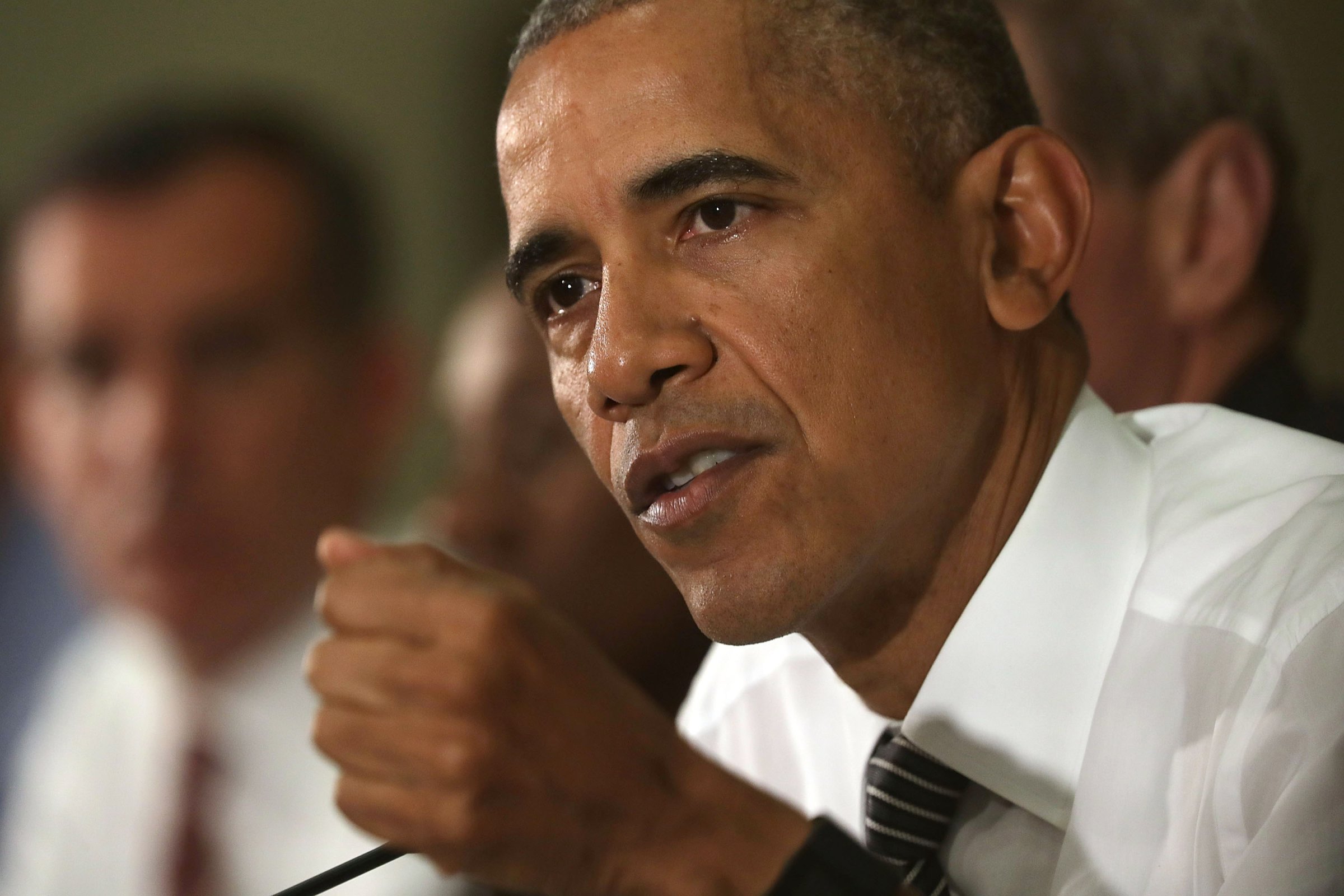
President Obama held a four-and-a-half hour meeting on Wednesday inviting civil rights advocates and law enforcement to offer solutions to mend their relations.
In the midst of national tension surrounding the death of two black men by law enforcement and the Dallas shooting that left five police officers dead, President Obama held a conference in the White House aimed at relieving tensions between both groups.
According to attendees, the meeting was more solution-focused, a tone Obama set in his opening remarks.
“Not only are there very real problems but there are still deep divisions about how to solve these problems,” Obama said, according to a pool report. “There is no doubt that police departments still feel embattled and unjustly accused. And there is no doubt that minority communities, communities of color, still feel like it just takes too long to do what’s right.”
“We have to as a country sit down and just grind it out. Solve these problems,” he later added.
The meeting, that reportedly began at 2:45 p.m. and ended roughly at 7:15 p.m., allowed for law enforcement, activists and administration officials to share their stories and offer solutions. Many of the attendees stressed the importance of the presence of diverse voices.
“Law enforcement, elected officials, civil rights leaders, protesters, all of us needed to be in a room and talk bluntly to each other….This is a time we need to talk frankly to each other,” said civil rights activist Al Sharpton. “We were able to say to law enforcement what we felt, they said what they felt, protesters what they felt, those of us that had been through this before, those that had never been through it. And the president giving some leadership and guidance. And I think we learned a lot about each other’s real feelings. …We leave here not in agreement on every issue but agreeing that the dialogue is important. But it must lead to change.”
Eric Garcetti, the mayor of Los Angeles, echoed that sentiment.
“The meeting allowed us to hear one another,” he said. Not to agree on everything, but to find a place where we can make sure our voices were heard and, most importantly, where some sort of common humanity was reestablished between us all.”
More Must-Reads from TIME
- Donald Trump Is TIME's 2024 Person of the Year
- Why We Chose Trump as Person of the Year
- Is Intermittent Fasting Good or Bad for You?
- The 100 Must-Read Books of 2024
- The 20 Best Christmas TV Episodes
- Column: If Optimism Feels Ridiculous Now, Try Hope
- The Future of Climate Action Is Trade Policy
- Merle Bombardieri Is Helping People Make the Baby Decision
Contact us at letters@time.com